How to Reduce Agent Turnover Rate in Customer Service
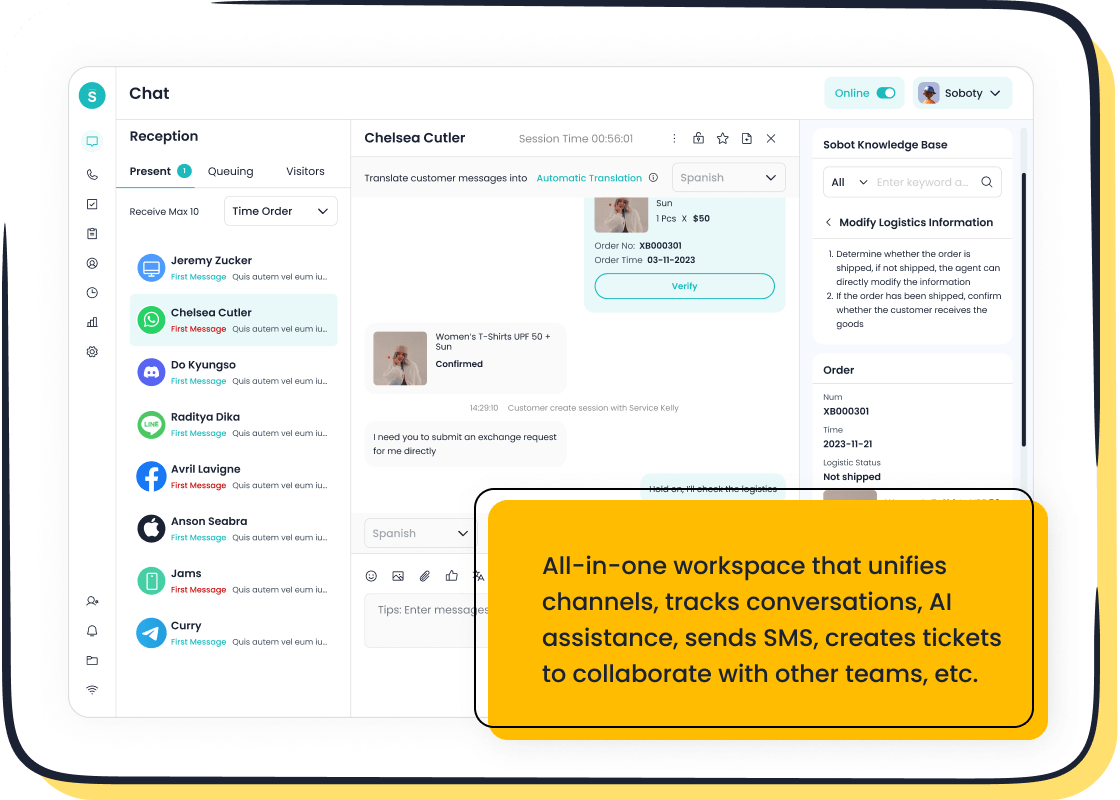
Reducing the agent turnover rate (ATR) in customer service is essential for maintaining operational efficiency and customer satisfaction. High turnover rates, which can reach up to 85% in some contact centers, lead to significant costs. Replacing a single agent can cost between $6,000 and $20,000, while a 10% monthly turnover rate in a 150-agent team may require hiring 180 new agents annually. This not only strains budgets but also impacts team morale and service quality. New agents often struggle with complex issues, lowering customer satisfaction scores. Implementing effective strategies, such as leveraging tools like Sobot Live Chat, can improve agent retention by streamlining workflows and reducing stress.
Identifying the Root Causes of Agent Turnover
Common reasons behind high agent turnover rate (ATR)
High call center turnover is a persistent challenge in the customer service industry. The annual call center turnover rate typically ranges between 30-45%, with some centers experiencing rates as high as 60%. Several factors contribute to this issue:
- Job dissatisfaction: Many agents feel undervalued due to low pay and lack of recognition.
- Burnout: A staggering 76% of agents report experiencing customer service burnout, often caused by high workloads and repetitive tasks.
- Poor management practices: Ineffective leadership can lead to frustration and disengagement.
- Undesirable work schedules: Rotating shifts and mandatory overtime disrupt work-life balance.
These factors not only increase high staff turnover but also strain the hiring process, making it harder to maintain a stable workforce. Addressing these issues is critical for reducing call center turnover and improving employee retention strategies.
The role of stress and burnout in agent attrition
Customer service burnout plays a significant role in agent attrition. Agents often face high interaction volumes, tight deadlines, and emotional labor. For example, 81% of agents report dealing with verbal or emotional abuse daily. This constant pressure leads to exhaustion and disengagement. Repetitive tasks further compound the problem, making the job feel monotonous and unfulfilling.
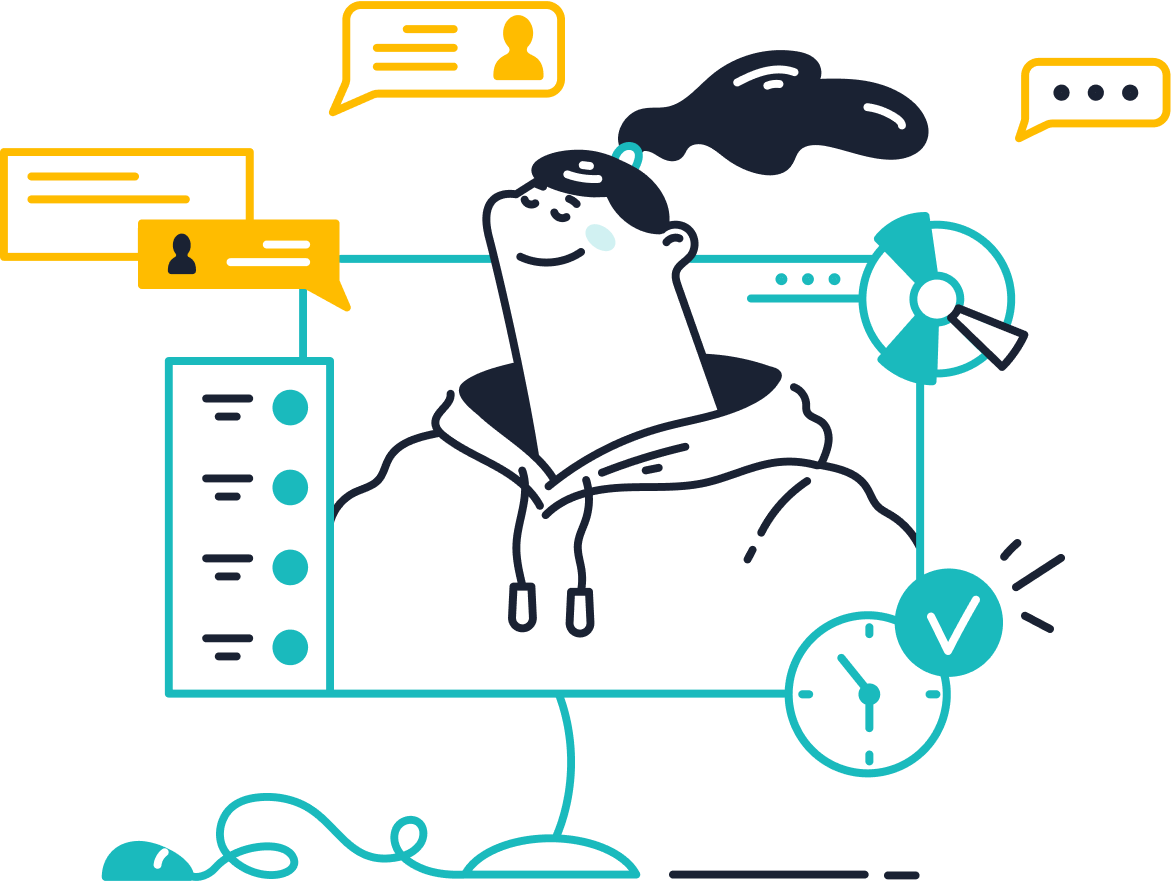
Inadequate training and poor working conditions also contribute to stress. Agents who feel unsupported or work in noisy environments struggle to perform effectively. These challenges highlight the importance of preventing burnout through strategies like flexible schedules and better training programs. Tools like Sobot Live Chat can help reduce agent attrition by automating repetitive tasks and streamlining workflows, allowing agents to focus on meaningful interactions.
How limited career growth opportunities affect agent retention
Limited career advancement opportunities significantly impact employee retention. Agents who see no clear path for growth often view their roles as temporary. Companies with well-defined career growth programs experience 34% lower turnover rates. This demonstrates the importance of offering promotions and skill development opportunities.
Providing mentorship programs and clear progression paths can motivate agents to stay longer. Sobot’s solutions, such as its AI-powered tools, can help agents develop new skills and improve their efficiency, making them feel more valued and invested in their roles. These efforts are essential for reducing call center turnover and fostering long-term employee satisfaction.
Enhancing Work Conditions and Culture to Reduce Agent Attrition
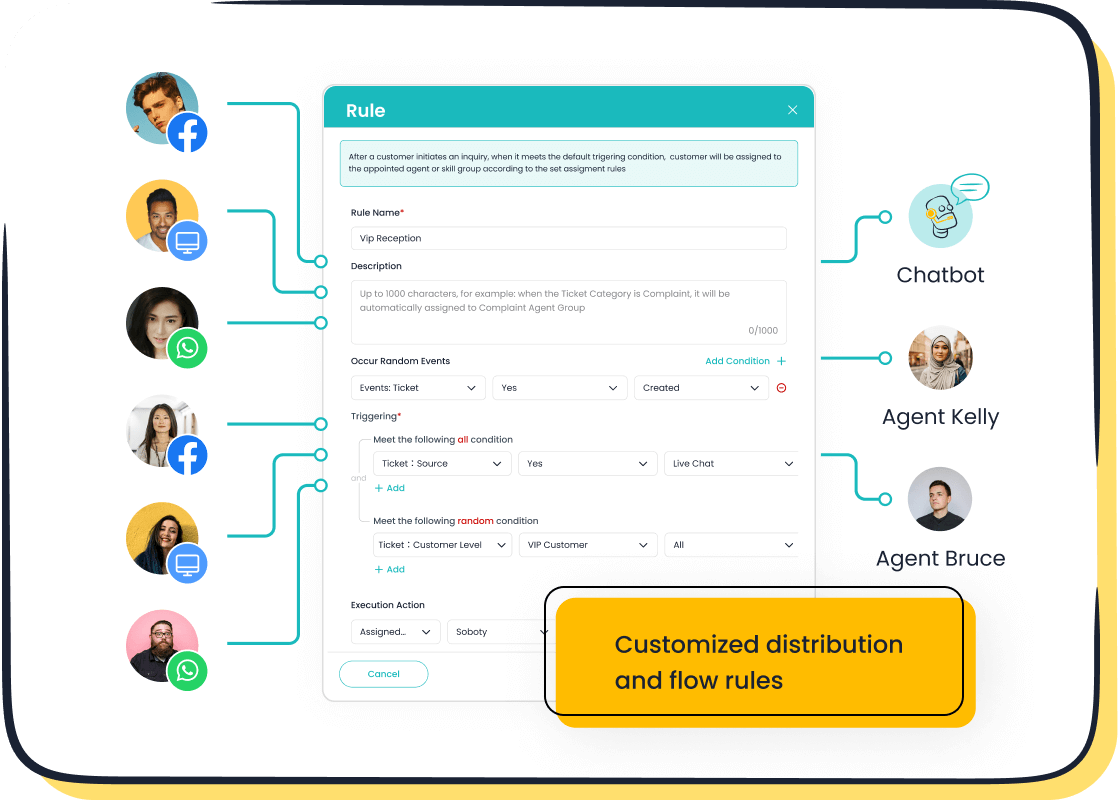
Building a positive and inclusive workplace environment
Creating a positive work environment is essential for improving retention. Employees thrive in workplaces where they feel valued and included. For example, a luxury hotel chain increased guest satisfaction by 25% after addressing employee disengagement through workshops. You can achieve similar results by fostering open communication and encouraging collaboration. When agents feel heard and supported, their engagement improves, leading to better performance and lower turnover.
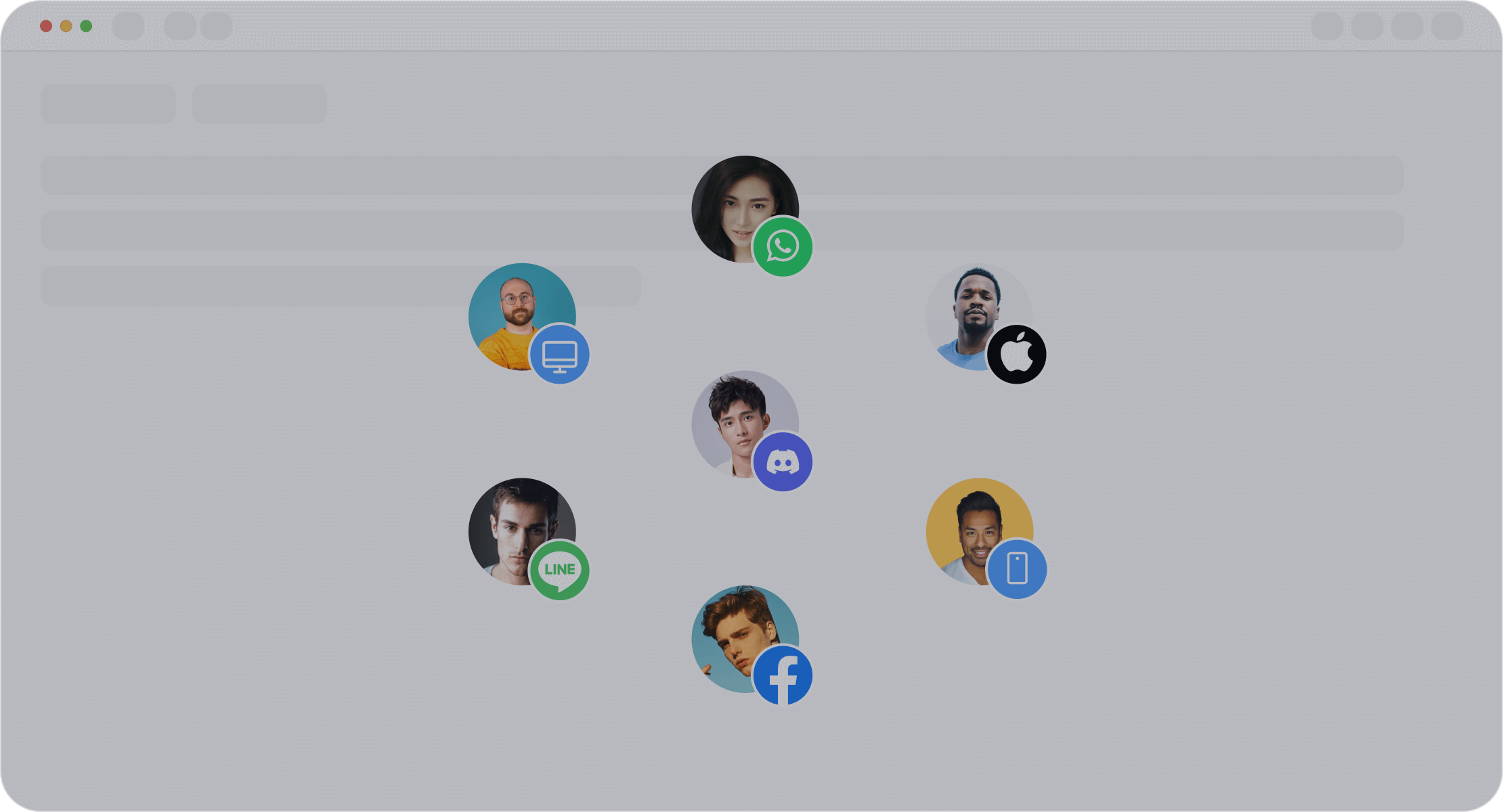
A positive work environment also involves providing the right tools. Modern technology, like Sobot Live Chat, simplifies workflows and reduces stress. By integrating omnichannel support and AI-powered tools, you can empower agents to handle tasks more efficiently. This not only boosts agent engagement but also enhances customer satisfaction.
Offering flexible schedules and promoting work-life balance
Work-life balance plays a critical role in reducing attrition. Organizations with strong policies in this area experience 25% lower turnover rates. Flexible schedules allow agents to manage personal and professional responsibilities effectively. Salesforce, for instance, reduced turnover by 27% by prioritizing work-life balance.
Remote work options also contribute to retention. A McKinsey report found that flexibility in work arrangements reduced turnover by up to 25%. Tools like Sobot Live Chat enable seamless remote operations, ensuring agents stay productive while maintaining balance. By adopting these strategies, you can create a supportive environment that fosters loyalty.
Recognizing and rewarding agent contributions effectively
Recognition is a powerful tool for retention. Studies show that 47% of employees leave jobs due to feeling underappreciated. Effective recognition programs can lower turnover rates by 31%. Simple gestures, like acknowledging achievements during team meetings, can make a significant impact.
You can also implement performance-based rewards. For example, using analytics from platforms like Sobot Live Chat, you can identify top-performing agents and reward them accordingly. This not only motivates employees but also strengthens their commitment to your organization. Recognition fosters a culture of appreciation, reducing stress and improving overall morale.
Comprehensive Onboarding and Career Development Opportunities

The importance of comprehensive onboarding for new agents
A comprehensive onboarding process sets the foundation for agent retention and long-term success. When new agents receive proper onboarding, they feel more confident and prepared to handle their roles. Studies show that companies with strong onboarding programs can increase new hire retention by 82% and boost productivity by over 70%. This structured onboarding process equips agents with the tools and knowledge they need to excel, reducing stress and improving job satisfaction.
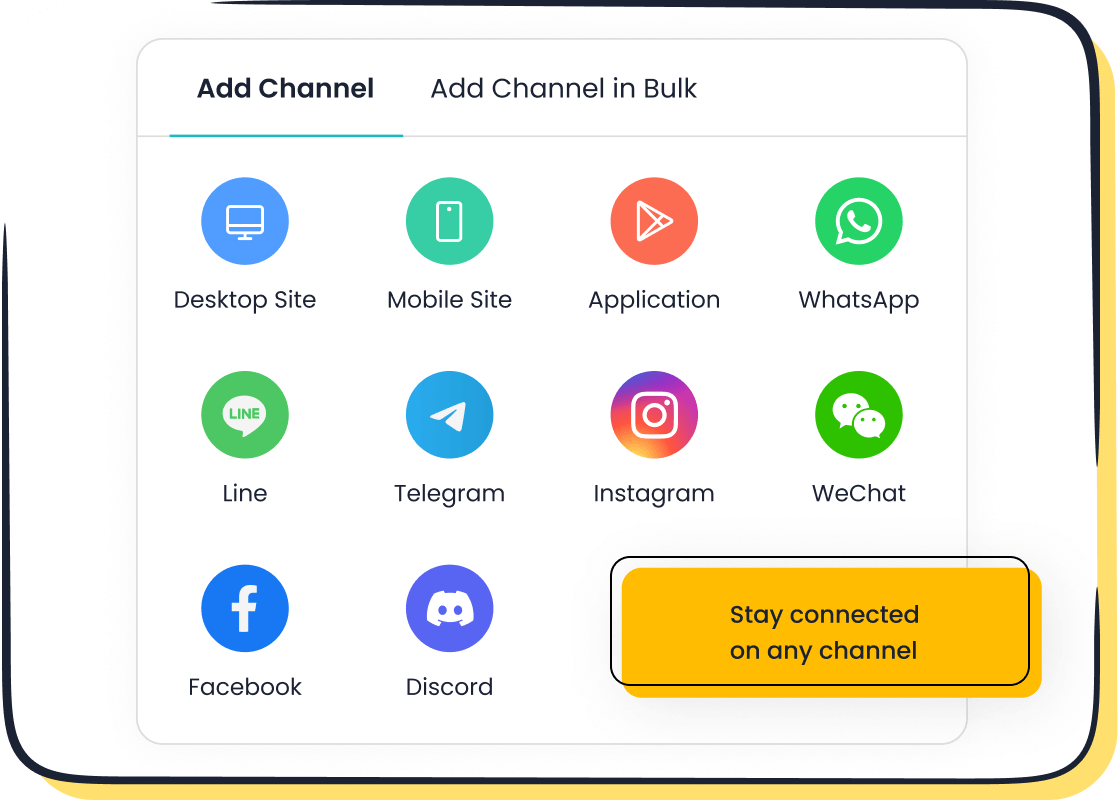
For example, onboarding programs that include continuous training and supportive resources help agents adapt quickly. A well-structured onboarding process also reduces the number of questions new hires ask by 30%, allowing them to focus on delivering excellent customer service. Tools like Sobot Live Chat can enhance onboarding by providing agents with a unified workspace and AI-powered assistance, streamlining workflows from day one.
| Metric | Value |
|---|---|
| New hire retention increase | 82% |
| Productivity increase | 70% |
Providing clear career progression paths to boost retention
Agents are far more likely to stay when they see opportunities for professional growth. Clear career progression paths not only motivate employees but also foster loyalty. Research shows that agents are 10 times more likely to remain with a company that offers defined career development opportunities. Additionally, 94% of employees say they would stay longer if their employer invested in their learning and development.
You can implement strategies like skill-based promotions or internal mobility programs to encourage retention. For instance, Sobot’s AI-powered tools can help agents develop new skills, making them more efficient and prepared for advanced roles. By offering professional growth opportunities, you create a culture where agents feel valued and invested in their future.
Mentorship programs to support agent growth and satisfaction
Mentorship programs play a crucial role in agent retention and satisfaction. Agents with mentors are five times more likely to receive promotions and report a 20-30% increase in job satisfaction. These programs provide agents with guidance, helping them navigate challenges and achieve their career goals.
Mentorship also boosts workforce engagement by 25% and increases retention rates by 20%. Pairing new agents with experienced mentors fosters a supportive training environment, ensuring they feel connected and motivated. Sobot’s solutions, such as its omnichannel support and real-time communication tools, can facilitate mentorship by enabling seamless collaboration between team members.
| Metric | Value |
|---|---|
| Increase in job satisfaction | 20-30% |
| Boost in chances of promotions | 40% |
| Likelihood of promotion with a mentor | 5 times more likely |
| Increase in employee retention rates | 20% |
| Rise in workforce engagement | 25% |
Leveraging Technology to Support Agent Retention
How Sobot Live Chat streamlines workflows and reduces workload
Efficient workload management is essential for improving agent retention. Sobot Live Chat simplifies this by unifying all customer interactions into a single workspace. Agents no longer need to switch between platforms, which reduces stress and improves focus. For example, Sobot Live Chat’s intelligent assignment feature ensures that inquiries are routed to the most suitable agent, saving time and effort.
The platform also integrates AI-powered tools to assist agents in providing accurate and timely responses. This reduces inbound discussion volume by 20% and increases customer satisfaction scores to 97%. Additionally, Sobot Live Chat’s built-in analytics help you monitor performance and identify areas for improvement. These features collectively enhance workload management, allowing agents to focus on meaningful tasks and boosting their job satisfaction.
| Metric Description | Value |
|---|---|
| Reduction in inbound discussion volume | 20% |
| Customer satisfaction score (CSAT) | 97% |
| Problems solved with Sobot solutions | 85% |
Using AI and automation to handle repetitive tasks
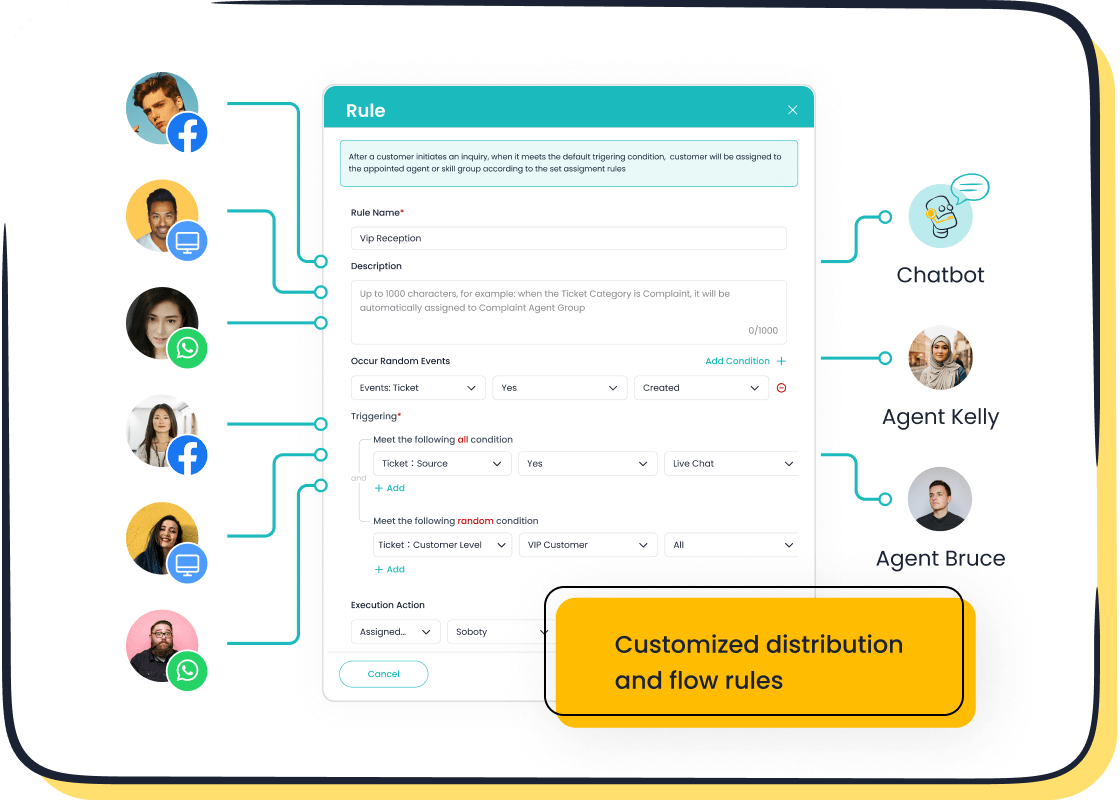
Repetitive tasks often lead to agent burnout, but AI technology offers a solution. Sobot Live Chat uses AI to handle routine inquiries, such as order tracking or FAQs, freeing agents to focus on complex issues. This 24/7 availability ensures that customers receive immediate assistance, even during off-hours. For instance, late-night shoppers can interact with chatbots without delay, improving their experience.
Automation also enhances efficiency. Studies show that implementing AI reduces resolution time by 52% and first response time by 37%. This scalability allows chatbots to manage multiple interactions simultaneously, ensuring no customer is left waiting. By adopting AI-driven strategies, you can improve workload management and create a more supportive environment for your agents.
Real-time communication tools for better collaboration and support
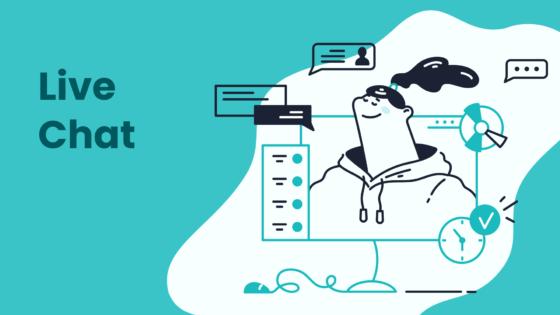
Real-time communication tools play a vital role in fostering teamwork and improving retention. Sobot Live Chat includes features like instant messaging and collaborative workspaces, enabling agents to seek help or share insights quickly. This eliminates silos and enhances the sense of connectedness within your team.
Teams using real-time tools report a 30% increase in productivity and a 23% reduction in meetings. These tools also streamline issue resolution, as agents can consult with supervisors or colleagues in real time. By integrating such solutions, you create a collaborative culture that supports agents and reduces their workload. This not only improves retention but also enhances overall service quality.
Offering Competitive Compensation and Benefits
Benchmarking salaries to meet industry standards
Meeting industry salary standards is essential for retaining skilled agents. Competitive pay ensures that employees feel valued and reduces the likelihood of them seeking opportunities elsewhere. For example, the average salary for a Customer Service Representative I is $43,713, with a range of $39,380 to $49,086. Offering salaries within this range demonstrates your commitment to fair compensation.
Studies also highlight the importance of competitive pay. Research by Khatun et al. (2023) found that compensation plays a more significant role in employee retention than development opportunities. Similarly, Maru & Omodu (2020) revealed a strong positive correlation between monetary benefits and retention. By benchmarking salaries against industry standards, you can attract and retain top talent while fostering job satisfaction.
| Position | Average Salary | Salary Range |
|---|---|---|
| Customer Service Representative I | $43,713 | $39,380 - $49,086 |
| Typical Earnings | $35,434 - $53,977 |
Providing performance-based incentives to motivate agents
Performance-based incentives are a proven strategy for improving agent motivation and retention. Monetary rewards, such as bonuses or commissions, encourage agents to excel in their roles. A Cochrane systematic review found that monetary incentives increased retention rates by 18%. These incentives were also the most effective among six tested strategies for improving retention.
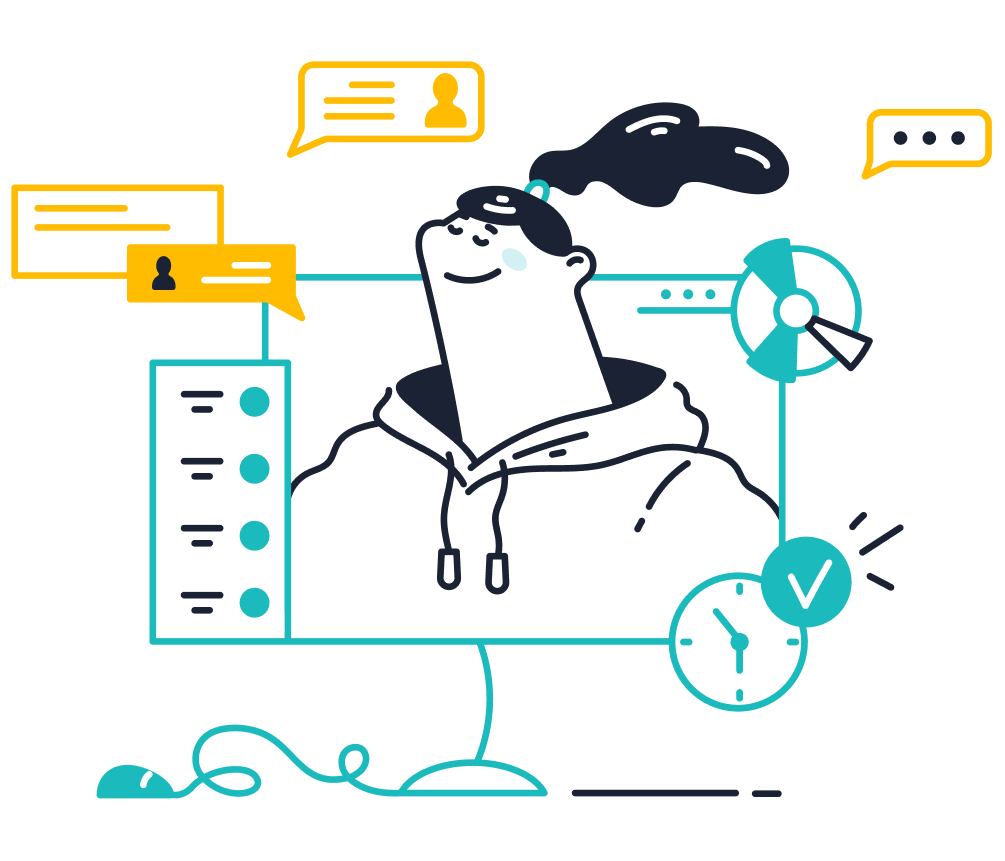
You can use tools like Sobot Live Chat to track agent performance and identify top achievers. For instance, built-in analytics can measure metrics like response time and customer satisfaction scores. Recognizing high-performing agents with rewards not only boosts morale but also strengthens their loyalty to your organization. This approach ensures that your team remains motivated and committed to delivering excellent service.
- Incentives improve retention rates by 18%.
- Monetary rewards are the most effective strategy for retention.
Offering comprehensive benefits packages to enhance job satisfaction
Comprehensive benefits packages play a crucial role in boosting job satisfaction and retention. Flexible benefits, such as remote work options and wellness programs, have been shown to reduce turnover rates. Companies like Netflix and Salesforce have successfully implemented such strategies, resulting in higher employee satisfaction.
A well-rounded benefits package might include health insurance, retirement plans, and paid time off. These offerings demonstrate that you care about your employees' well-being. Research by Thanasirisate et al. (2015) confirms that compensation and welfare are key factors in employee retention. By investing in comprehensive benefits, you create a supportive environment where agents feel valued and motivated to stay.
| Evidence Type | Description | Source |
|---|---|---|
| Flexible Benefits | Enhances retention and reduces turnover rates. | Contact Center Pipeline |
| Competitive Compensation | Crucial for retaining employees. | SCIRP |
| Effective Onboarding | Improves new agent retention. | Contact Center Pipeline |
Reducing agent turnover requires actionable strategies that address workplace challenges and foster growth. Offering career development opportunities can lower turnover by 34%, as reported by Harvard Business Review. Engaged employees are 8.5 times more likely to stay, according to McKinsey. These efforts improve retention, enhance team performance, and boost customer satisfaction. Tools like Sobot Live Chat streamline workflows, reduce stress, and empower agents to focus on meaningful tasks. By implementing these strategies, you can create a supportive environment that drives long-term success.
| Evidence Description | Source |
|---|---|
| 70% of employees leave their jobs due to lack of career advancement | 2023 Gallup survey |
| Companies with well-defined career growth programs experience 34% lower turnover | Harvard Business Review |
| 94% of employees would stay longer if the company invested in their development | Study |
| Engaged employees are 8.5 times more likely to stay with their employer | McKinsey |
| The average cost of replacing a frontline agent is $10,000 | Industry report |
FAQ
What is the average agent turnover rate in customer service?
The average agent turnover rate ranges from 30% to 45%, with some centers experiencing rates as high as 60%. Addressing this issue can significantly improve team stability and performance.
How does Sobot Live Chat help reduce agent turnover?
Sobot Live Chat streamlines workflows, automates repetitive tasks, and provides AI-powered tools. These features reduce stress, improve efficiency, and enhance job satisfaction, leading to lower turnover rates.
Why is onboarding important for agent retention?
Comprehensive onboarding increases new hire retention by 82% and boosts productivity by 70%. It equips agents with the skills and confidence needed to succeed in their roles.
See Also
Effective Strategies for Managing Live Chat Representatives
Ten Strategies to Enhance Customer Satisfaction via Live Chat
Transforming Support with AI-Powered Customer Service Agents
